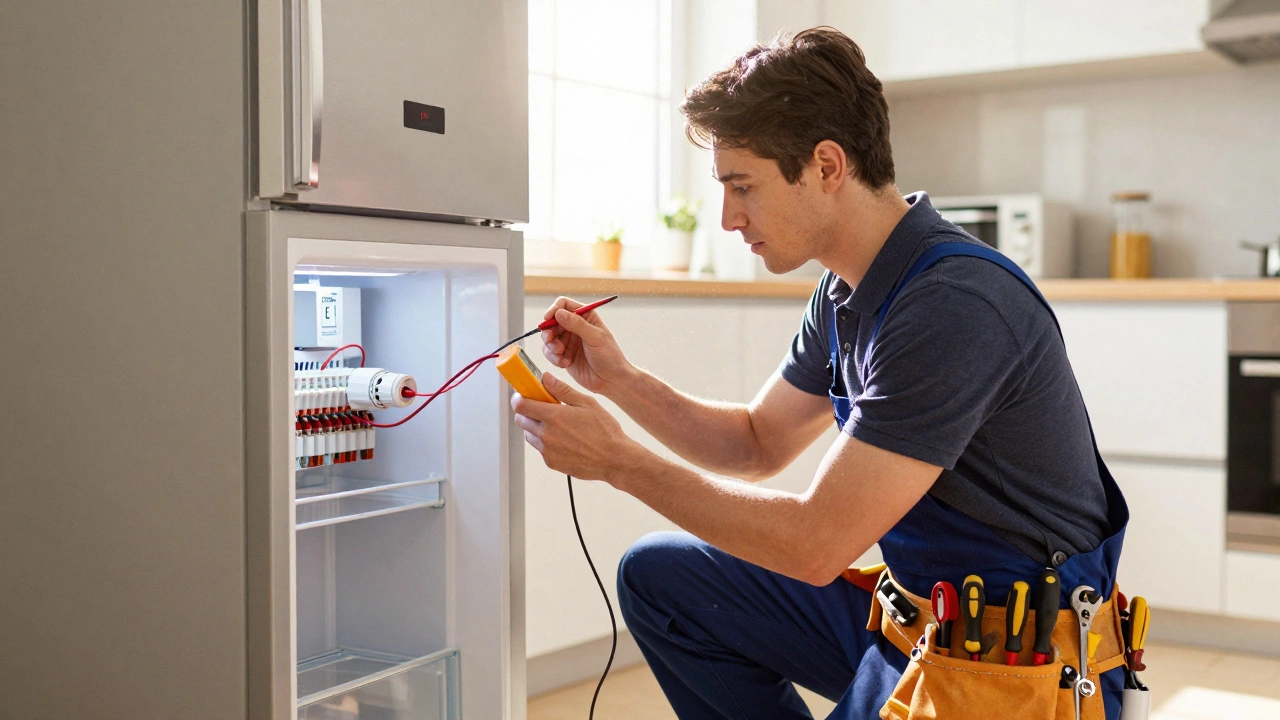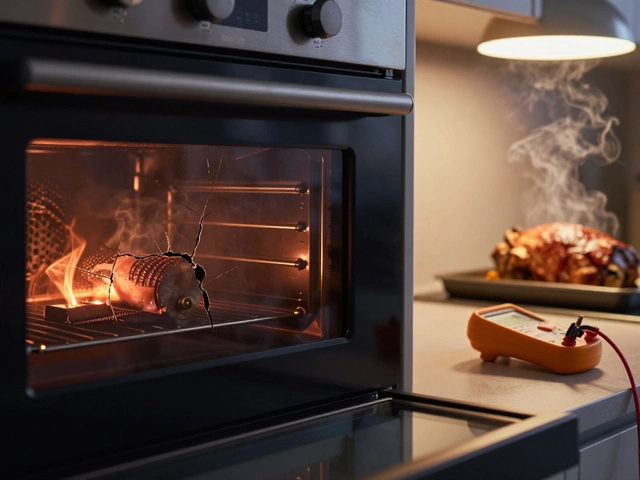Should You Replace Your Oven's Heating Element? Repair Tips, Costs & Signs
July 23 2025Appliance Technician Guides – Expert Tips for Home Repairs
If a fan stops humming or your boiler starts sputtering, you don’t need to panic. Our appliance technicians have put together straightforward guides that help you spot the problem, do a quick fix, or decide when it’s time to call a pro. Below you’ll find bite‑size advice for the most common household appliances, all written in plain language.
Common Appliance Issues and Simple Fixes
Kitchen extractor fans collect grease every time you cook. Over time the motor can overheat, the fan blades may get sticky, or the filter clogs. A quick clean‑out with warm soapy water usually brings the fan back to life. If the fan still won’t spin, check the power supply and the motor’s capacitor – both are cheap parts you can replace yourself.
Boilers are the heart of your heating system, and a noisy or slow‑heating boiler often means a build‑up of limescale or a faulty pump. Flushing the system or bleeding radiators can restore efficiency. When the pressure gauge stays low, the expansion vessel might need re‑pressurising – a task most homeowners can do with a simple pump.
Oven elements burn out more often than you think. If the oven heats unevenly or won’t get hot at all, unplug it, remove the element and look for a broken coil or a blackened spot. Replacing the element is usually a 10‑minute job and costs far less than a brand‑new oven.
Water heaters collect sediment at the bottom, which reduces heating speed and can cause noisy operation. A yearly flush using a garden hose clears the debris. If you hear rumbling after a flush, the heating element might be failing and should be swapped out.
When to Call a Professional
Some issues are best left to certified gas engineers. If you smell gas, hear a hissing sound, or notice the pilot won’t stay lit, shut off the gas supply and call a professional immediately – safety comes first. Likewise, if your furnace cycles on and off quickly (short‑cycling), it could be a ventilation problem that needs a qualified eye.
Electric appliances that spark, emit a burning smell, or refuse to start after resetting the breaker often have internal wiring faults. Trying to repair these yourself can be risky, especially if you’re not comfortable working with electricity. A qualified electrician will diagnose and fix the problem safely.
Complex refrigeration issues, like a freezer that won’t stay cold despite a clean condenser, may involve refrigerant leaks or compressor failures. Both require specialist tools and certification, so it’s smarter to schedule a service call.
Regular maintenance cuts down on emergency calls. Set a calendar reminder for annual boiler servicing, bi‑annual fan clean‑ups, and yearly water‑heater flushing. A little preventive work now saves you time, money, and the stress of a sudden breakdown.
Our tag page gathers all these guides in one place, so you can quickly find the exact article you need – whether it’s “How Long Do Kitchen Extractor Fans Last?” or “Should You Replace a 15‑Year‑Old Boiler?”. Bookmark the page, and keep it handy for the next time an appliance misbehaves.
Remember, most appliances are designed to be user‑friendly. With the right knowledge, you can tackle many repairs yourself, keep your home running smoothly, and only call a professional when the job truly calls for expert hands.
 11 Dec
11 Dec
What Is the Role of an Appliance Technician?
An appliance technician keeps your home running by diagnosing and repairing fridges, washing machines, ovens, and more. They combine technical skill with real-world problem-solving to fix what matters most.
Read More... 4 Apr
4 Apr
The Meaning of Appliance for a Job in Service Industry
Understanding what 'appliance for a job' means in the appliance service industry can make a huge difference in landing a role. From knowing what skills to highlight, to understanding the expectations of the job, this guide breaks down everything you need. Whether you're just starting or looking to level up your career, these insights could be your next stepping stone. Learn how appliance efficiency isn't just about machines—it’s about you as a professional. Get ready to explore this interesting connection.
Read More...



